So I created a simple server launch a proxy server as well a normal server
var http = require('http'),
httpProxy = require('http-proxy');
proxy = httpProxy.createProxyServer({
target:'http://localhost:9000',
}).listen(8000);
//
// Create your target server
//
http.createServer(function (req, res) {
let data = 'request successfully proxied!' + '\n' + JSON.stringify(req.headers, true, 2);
res.writeHead(200, { 'Content-Type': 'text/plain', 'Content-Length': data.length });
res.write(data);
res.end();
}).listen(9000);
And then tested the same using below
$ curl "localhost:8000"
request successfully proxied!
{
"accept": "*/*",
"user-agent": "curl/7.54.0",
"host": "localhost:8000",
"connection": "close"
}
Then in the documentation I found below
selfHandleResponse true/false, if set to true, none of the webOutgoing passes are called and it's your responsibility to appropriately return the response by listening and acting on the proxyRes event
So updating the code like below
var http = require('http'),
httpProxy = require('http-proxy');
proxy = httpProxy.createProxyServer({
target:'http://localhost:9000',
selfHandleResponse: true
}).listen(8000); // See (†)
proxy.on('proxyRes', function(proxyRes, req, res) {
if (proxyRes.headers["content-type"] && proxyRes.headers["content-type"].indexOf("text/plain") >=0) {
// We need to do our modification
if (proxyRes.headers["content-length"]) {
//need to remove this header as we may modify the response
delete proxyRes.headers["content-length"];
}
var responseModified = false;
proxyRes.on('data', (data) => {
let dataStr = "";
if (!responseModified && (dataStr = data.toString()) && dataStr.indexOf("proxied!") >= 0) {
responseModified = true;
dataStr = dataStr.replace("proxied!", "proxied? Are you sure?")
res.write(Buffer.from(dataStr, "utf8"));
console.log("Writing modified data");
} else {
res.write(data);
console.log("Writing unmodified data");
}
});
proxyRes.on('end', (data) => {
console.log("data ended")
res.end();
});
} else {
proxyRes.pipe(res)
}
});
//
// Create your target server
//
http.createServer(function (req, res) {
let data = 'request successfully proxied!' + '\n' + JSON.stringify(req.headers, true, 2);
res.writeHead(200, { 'Content-Type': 'text/plain', 'Content-Length': data.length });
res.write(data);
res.end();
}).listen(9000);
And testing it again
$ curl "localhost:8000"
request successfully proxied? Are you sure?
{
"accept": "*/*",
"user-agent": "curl/7.54.0",
"host": "localhost:8000",
"connection": "close"
}
Now the output on the server console is below
Writing modified data
data ended
This doesn't confirm if we really got only partial stream modified. So I changed the code like below
http.createServer(function (req, res) {
let data = 'request successfully proxied!' + '\n' + JSON.stringify(req.headers, true, 2);
res.writeHead(200, { 'Content-Type': 'text/plain', 'Content-Length': data.length * 5});
res.write(data + data)
setTimeout(() => {
res.write(data + data + data);
res.end();
});
}).listen(9000);
And opened in browser

As you can see the data was replace in streams and as per the logic, replacement only happens once and the rest of the stream is passed as it is
